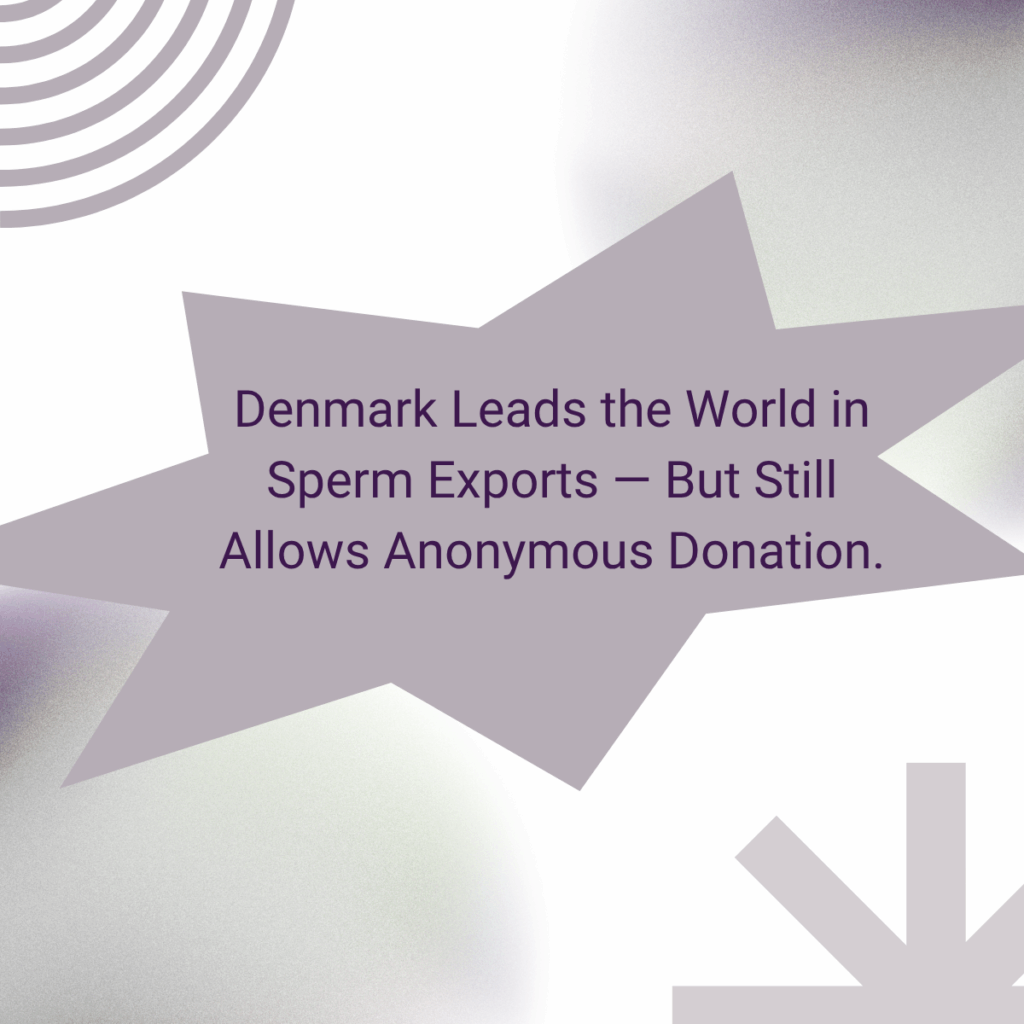Denmark: The World’s Top Sperm Exporter—But at What Cost to Donor-Conceived Children?
Denmark has become a global leader in sperm donation, exporting to more than 80 countries and helping create tens of thousands of families worldwide. Denmark is known for high-quality medical standards, a broad donor pool, and efficient export systems.
Yet amid all this success, there is a growing concern that Denmark is overlooking a critical issue: the rights of donor-conceived children.
Anonymous Donation Remains an Option
Unlike many countries that have moved toward open or identifiable sperm donation, Denmark continues to allow donors to remain anonymous. Intended parents can choose between anonymous, non-anonymous (ID-release), or extended-profile donors, but many still opt for anonymity, especially for faster timelines and broader donor selection.
This might serve immediate parental preferences, but it raises serious long-term ethical questions.
Children Are Growing Up—and Speaking Out
As the first generations of donor-conceived children come of age, many are voicing their frustration, confusion, and pain over not knowing anything about half of their genetic identity. For these individuals, donor anonymity is not a protective policy—it is an erasure of heritage, medical history, and personal identity.
In countries like the UK, France, Sweden, Australia, and some States in the USA, authorities have taken action to ban anonymous gamete donation altogether. In so doing, they are shifting the focus from the desires of parents and donors to the fundamental rights of the children born through these arrangements.
Denmark, despite its international reach and influence in the fertility world, has yet to make this shift.
In effect, Denmark is exporting not only sperm but also an outdated practice that fails to recognize the evolving rights and needs of donor-conceived individuals.
It’s Time for Change
Denmark has the opportunity —a nd the responsibility — to lead ethically, not just medically. As the world’s most prolific exporter of donor sperm, Denmark’s policies set a global tone. And while choice and access remain important, they should never come at the expense of the rights of the people most affected by those choices: the children.
The international fertility community has made it clear: transparency matters, and identity is not a luxur y—i t’s a right.
It is time for Denmark to reconsider anonymous sperm donation. The lives, identities, and well-being of donor-conceived people deserve more than silence.


